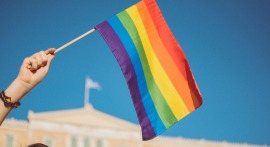
A new report reveals that the United States maintains a much more favorable view of the Bible and Christianity compared to other countries in the so-called “secular West.”
The American Bible Society's State of the Bible: USA 2025 report's second chapter, “The Bible Around the World,” is based on responses from 91,000 people in 85 countries collected through the Patmos World Attitudes Bible Survey, a collaboration with the British and Foreign Bible Society.
The Patmos Survey divided the world into seven clusters, with the latest chapter primarily focusing on Cluster 5, termed “the Secular West.” This group includes the U.S., Canada, Western Europe, Australia, and New Zealand.
The U.S. is distinguished as an outlier within “the Secular West,” a label assigned. Regarding Bible use—defined as engagement with the Bible outside of church services or events at least three to four times a year—the U.S. has a notably higher proportion of respondents who use the Bible at least occasionally, at 63%. Italy ranks second among these countries, with 50% of respondents indicating they use the Bible “a few times a week or more,” “at least monthly,” or “occasionally.”
Conversely, the highest proportions of respondents who “never” use the Bible are in the Netherlands (64%), France (63%), Australia (59%), the U.K. (56%), Canada (55%), and New Zealand (54%). In Italy, 46% said they “never” use the Bible, compared to only 33% in the U.S.
When asked about the belief that “It’s difficult to trust the Bible because it clashes with the scientific worldview,” 41% of respondents in the U.S. said they “disagree or strongly disagree” with this statement, marking the country as an outlier. In contrast, disagreement was lower in Italy (26%), Canada (26%), Ireland (23%), and Sweden (13%).
The share of respondents who “agree or strongly agree” that the Bible “clashes with the scientific worldview” was nearly the same in the U.S. at 31% and Italy at 30%; however, it was higher in Canada (35%), Sweden (42%), and Ireland (45%).
The U.S. is the only country where a majority—51%—see the Bible as “relevant to me personally.” Italy is a distant second with 37%, while Ireland is closely divided: 37% do not see the Bible as relevant, whereas 36% do.
In France (40%), Spain (42%), Canada (43%), Slovenia (44%), New Zealand (46%), the U.K. (48%), and Australia (49%), most respondents disagreed that the Bible was personally relevant to them, as did exactly half of those in Austria and Belgium. A majority in countries like Germany (53%), Switzerland (53%), the Netherlands (57%), Norway (58%), and Sweden (59%) shared the same view.
Regarding perceptions of the Bible as “a source of harm in the world,” a large majority of Italians—65%—“strongly disagreed” or “disagreed” with the statement, as did 55% of Americans. Fewer respondents in Canada (45%), Ireland (42%), and Sweden (29%) rejected this view.
When asked about church attendance, Ireland (62%) and Italy (61%) lead the “secular West,” with respondents stating they attend church at least “occasionally.” The U.S. follows closely with 57%, with people attending “weekly or more,” “at least monthly,” or “occasionally.” By contrast, majorities of respondents in France (57%), Canada (59%), New Zealand (60%), the U.K. (60%), the Netherlands (61%), and Australia (64%) reported they “never” go to church.

















